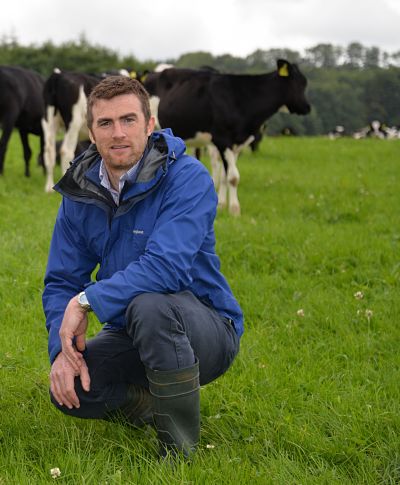
Led by the Agri-Food and Biosciences Institute (AFBI) and funded by DEFRA, the project brings together a UK-wide consortium of leading research institutions and industry organisations with one clear mission: to show that reducing emissions can go hand-in-hand with improving farm efficiency and productivity.
 Professor Steven Morrison
Professor Steven Morrison
“We are delighted to have brought together such a strong network of committed dairy farmers,” said Professor Steven Morrison, Project Director at AFBI. “These farms will act as living examples of what can be achieved when practical science meets on-the-ground know-how. The learnings we generate will be shared widely to help the whole sector move forward together.”
The farms are grouped into four regional networks: South and South-West England/Wales; Cumbria and South-West Scotland; North-West England and Northern Ireland. Work is underway gathering partial carbon footprints for each farm to inform discussions on options to reduce GHGs and monitor progress over time.
Over the course of the three-year programme, farms will implement and assess a range of approaches proven to reduce emissions, selected from five priority areas identified by the project, which include:
- Breeding for reduced methane
- Optimising feed formulation
- Improving health and disease control
- Enhancing forage quality and utilisation
- Enhanced nutrient planning
Farm liaison officers in each region will work closely with the appointed farms, providing hands-on support and facilitating knowledge-sharing opportunities through open days, farm walks, and peer-to-peer events. These activities are designed to accelerate learning, helping farmers across the UK see the benefits of GHG-reducing practices in action.
By demonstrating practical solutions on real farms, the UK Dairy Carbon Network aims to break down barriers to change and fast-track the adoption of methods that reduce GHG emissions while supporting the long-term resilience and profitability of the UK dairy industry.